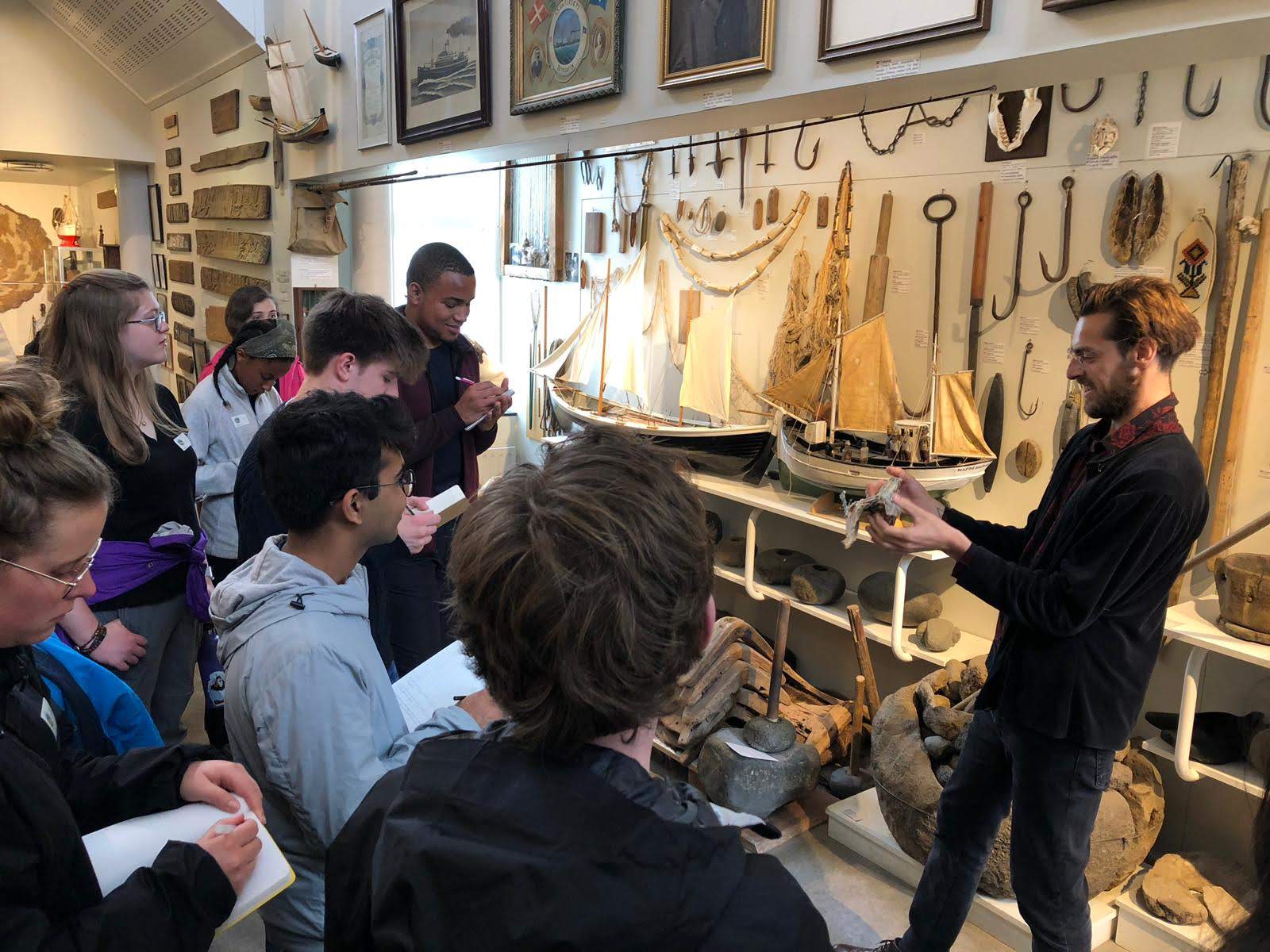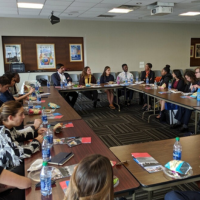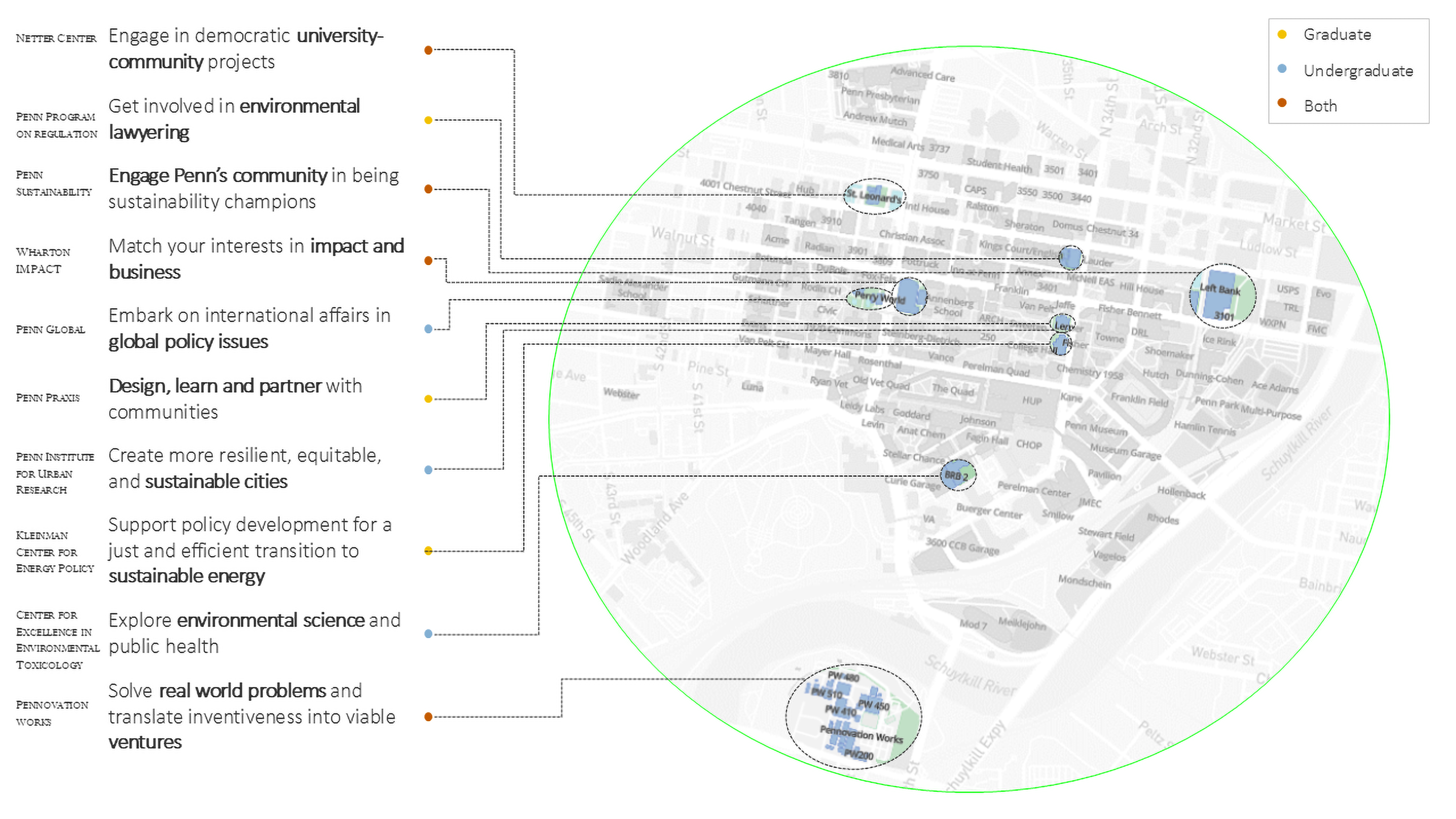Penn offers numerous pathways for students to get hands-on in developing and testing ideas for solutions to pressing environmental challenges. From courses that embed students in community settings both locally and globally to applied research projects that enable real-world capacity-building and build students' practical skills, immersive learning abounds at the University. Below is a curated guide to some of Penn's offerings.
Link field url: #Experiential
Experiential Learning Courses
Penn's Schools offer a myriad of coursework that enables students to accrue and apply environmental knowledge through travel, field trips, laboratory experiences, community engagement, and more. (Photo: Alain Plante)
View these courses on the Course Inventory and select 'yes' in the drop-down box under Experiential Learning.


Center for Excellence in Environmental Toxicology
Short Term Educational Experiences for Research in Environmental Science for Undergraduates
Ten weeks of summer activities will expose students to the field of environmental health science through mentorship, coursework, and field experience.

Wharton Impact, Value, and Sustainable Business Initiative
Wharton Student Co-Curricular Offerings
A suite of eight programs, from research opportunities to consulting projects, that match students' interests in sustainable business.

Kleinman Center for Energy Policy
Kleinman Summer Fellowships - Energy Education in Action
Kleinman's energy policy fellowships give Penn students a unique, hands-on learning experience at high-profile institutions locally and globally, from the International Energy Agency in Paris, Energia at The Hague, or the Philadelphia Energy Authority.

Netter Center for Community Partnerships
Student Engagement Opportunities
Through Netter, students can participate in Academically-Based Community Service Courses, volunteer and work-study opportunities in University-Assisted Community Schools, summer internships with community organizations, and more, enabling on-the-ground and community-embedded learning.

Perry World House
Undergraduate World House Student Fellows
Each year, 25-30 Fellows from Penn’s four undergraduate schools (College of Arts & Sciences, Engineering, Nursing and Wharton) are selected to collectively address a pressing policy challenge for a full academic year, also participating in a seminar series and field learning in Washington, DC, and New York City.

Penn Sustainability
Student opportunities
Penn Sustainability Office programs like Eco-Reps and the Civic Sustainability Fellowship offer a variety of ways to engage in sustainability learning and research connected both to the campus environment and that of our home city, Philadelphia.

Penn Praxis
Design Fellows Program
Begun in 2018, this student-centered arm of PennPraxis enables participation in projects of practice outside the bounds of the Weitzman School of Design.

Penn Program on Regulation
Environmental Law Project
Using an interdisciplinary focus to address the legal, scientific, economic, political, and social factors that are involved in environmental lawyering, students engage in research projects that actively address the unmet needs of environmental preservation and justice on local, national and international levels.

Pennovation Center
Innovators
On the Pennovation Works property, near Penn's main West Philadelphia campus, state-of-the-art facilities accommodate researchers, entrepreneurs, and industry partners solving real world problems and translating inventiveness into viable ventures. Students can contact these entities to get involved.

Penn Institute for Urban Research
Penn IUR Fellows in Urban Leadership (FUL) and Undergraduate Urban Research Colloquium (UURC)
With UURC, students pair with faculty conducting urban-focused scholarship to build research skills in a semester-long, credit-bearing seminar. In FUL, undergrads meet monthly with leaders to discuss the rewards and challenges of creating more resilient, equitable, and sustainable cities.
